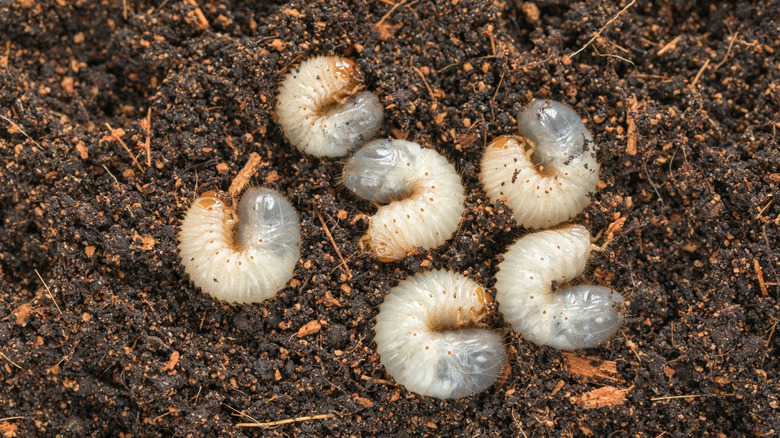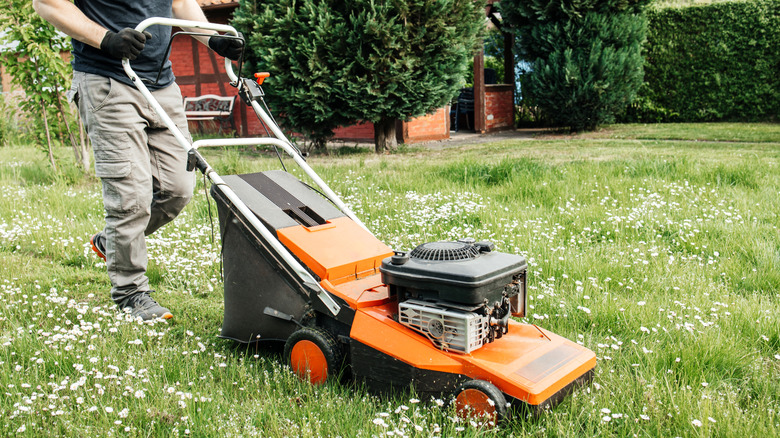Minimize Grub Worms In Your Yard With These Lawn Mowing Tips
We may receive a commission on purchases made from links.
Grubs are a type of worm you never want to see in your garden or lawn. Given that they live underground, you may not immediately realize when they invade, but there will be sneaky signs of a pest problem in your yard, such as wilting or discolored areas of grass and bare spots. Additionally, given that grubs attract moles, you may notice a sudden increase in the number of molehills in your lawn. In order to prevent complete destruction, you can minimize grub worms in your yard with when and how you mow, which, in turn, keeps your lawn healthy, too.
To understand how mowing can affect the number of grubs in your lawn, it's important to understand why they are there to begin with. Grubs are the larvae of beetles and live in the soil beneath lawns until they emerge during summer. While in their subterranean stage, grubs feed on the roots of grass and are particularly attracted to grasses with shorter roots living in moist soil. So, while there are a number of both chemical and natural products that can be applied to lawns to help kill and/or deter beetles and grubs, there are steps you can take when it comes to mowing and maintaining your yard that can limit grubs as well.
Maintaining a healthy lawn can limit grubs
Good lawn maintenance can effectively limit the number of grubs in your yard. That starts with mowing your lawn properly. In order to make lawns less inviting, it is suggested to let them grow a bit taller. Following the one-third rule is a good way to maintain a healthy, lush lawn. Additionally, keeping the blades sharp and set at least three-inches high will help limit the number of grubs in your yard. Allowing the grass to grow higher also allows the roots to grow larger and denser, making them more resilient and likely to survive if grubs are in your lawn. It also makes them a much less desirable target for grubs.
Other lawn maintenance considerations for limiting grubs are attempting to eliminate any bare spots as quickly as possible and avoid overwatering. So, if you do see a bare spot, remove the dead grass and sprinkle fresh seed in the area to reestablish a patch of grass. It can also be beneficial to overseed your lawn to ensure the grass grows thick and dense.
While attempting to get your grass to grow, it is important to properly water. However, overwatering can actually attract grubs and beetles seek out soft soil in order to lay their eggs. To help prevent overwater, be sure to adjust your sprinkler system settings. If you do not have a permanent sprinkler system installed, it can be helpful to utilize an in-hose timer such as the Orbit Single-Outlet Hose Watering Timer.

